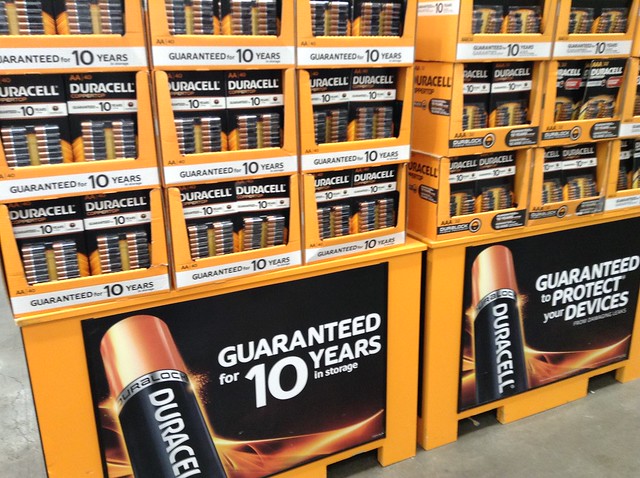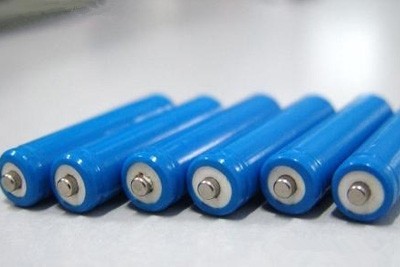Lithium-ion Battery Fire Extinguisher Discussion
Nov 13, 2019 Pageview:1779
Cell phones, remote controls, drones, laptops, tablets, energy-saving power plants, and electric vehicles, are some of the few applications in which lithium-ion batteries have been subjected to. These rechargeable cells utilize lithium ions that are translated into graphite and lithium salts without any elemental lithium in them. Such a property makes lithium-ion cells more stable than their predecessors, which contained lithium metal, thus making them as lethal as can be. For generations, lithium batteries have been appraised for their efficiency in providing high energy densities potent enough to power some of the most significant technological creations in history.
However, people tend to overlook the fact that lithium ions can still manage to pose a threat despite the cells’ numerous pre-installed safety measures. If mishandled or treated poorly, these cells have the potential to cause fire-related incidents that may be catastrophic to the environment and not just the user. At times, the fault may lie on the battery’s side rather than the user’s hence the need for fire safety precautions set to counter fire-related incidents with lithium-ion cells.
We’re always instructed to let the fire department handle lithium fires, but there are ways in which we can suppress the intensity of these fires before they spread. This is where lithium-ion battery fire extinguishers come into play before the fire department gets a hold of the location from which the accident occurred.
How much do you know about a lithium-ion battery fire extinguisher?
Fires that start from lithium-ion batteries are some of the most difficult to suppress and present severe risks to both equipment and personnel. The mechanism behind the manufacture of lithium-ion cells, which makes them suitable for powering electronic devices for long periods, results in extreme hazards when burnt. Lithium batteries have inbuilt safety measures designed during the manufacture and which make the cells reliable and safe. However, when a lithium-ion battery catches fire, it is the massive amounts of energy and the materials within the cells that make it difficult to extinguish the flames.
When it comes to fire extinguishing and extinguishers, lithium-ion batteries are considered a class A risk rather than class D. This is because lithium-ion cells do not contain lithium in a metallic form for them to be classified as a class D risk. The danger with these batteries mainly lies in the electrolyte within the cells and not the lithium salts. While every battery uses a different solution for an electrolyte, many of the solutions contain fluorine, which, when combined with other gases during combustion, can be very toxic. There is a wide range of extinguishers designed explicitly for fighting lithium-ion battery fires, which go the extra mile to neutralize the fluorine compounds and minimize harmful side effects.
Can you use water to put out a lithium battery fire?
One of the most significant issues that have stirred up much concern on the primary lithium and lithium-ion battery risk is whether or not to extinguish the fires using water. To know whether or not water can be a proper fire extinguisher, one needs to distinguish between plain lithium and lithium-ion batteries. Lithium-based batteries cannot be extinguished with water, while lithium-ion fires might be extinguished with water, but without 100% of assurance. This means that such lithium-ion related fires might not always be extinguished using water in all cases.
While lithium battery fires are considered class D, lithium-ion ones can be termed as class A. The best approach one can take to fight any fires related to both primary lithium and lithium-ion batters is using a class D fire extinguisher.
Throwing water on a lithium-ion battery-related fire might make it difficult to extinguish the flames. This is because water tends to reduce lithium in the electrolyte leading to the release of hydrogen gas, which is highly flammable. In other cases, because many lithium battery electrolytes contain fluorine, the hydrogen gas found in the water readily combines with it to make Hydrogen-Fluoride. This is a highly toxic compound that can cause respiratory failures and even blindness in its gaseous form. In an aqueous state, the mixture is translated to Hydrofluoric acid which is very corrosive on the skin.
Adding water to burning lithium increases the intensity of the flames, and the fire might subside only after all the lithium is wholly consumed. Using Fire bane on such flames can limit the severity. Only class D fire extinguishers that contain copper powder are suitable for fighting lithium fires. They are also approved forspecialing lithium-ion based flames at its best. Using water or any other type of extinguisher on lithium battery fires is hazardous. This is because both organic and inorganic lithium metal related fires are very reactive with water and other combustible substances/ chemicals.
How do you stop a lithium-ion battery fire with an extinguisher?
Lithium-ion battery fires can be extinguished using class A and D fire extinguishers. Lithium-ion cells do not contain lithium metal in their properties and therefore are safe to extinguish using water. However, this does not guarantee 100% success rates, and thus, one should use the recommended class A and D extinguishers forspecialing the flames. While class D extinguishers are used primarily for lithium-based fires, they also work correctly with lithium-ion related flames.
Lithium-ion battery fires can also be fought using sand, baking soda or flour when the flames seem minimal. In case the air gets bad due to the release of toxic fumes from the batteries, it is advisable to leave the area immediately. Your life isn’t worth the material possession that could be destroyed in the fire.
Final thoughts
When fighting lithium-based fires, it is always necessary to take extra precautions and follow the recommended fire fighting rules. Just because the fire may seem small doesn’t mean it’s less of a risk. Even while using the right fire extinguisher, things tend to go incredibly wrong and can cause catastrophic events. A lithium-ion battery on fire could explode and spread the flames and its reactive chemical components all over thereby causing severe damage. Fight battery fires with the right extinguisher, but take caution for you to avoid unexpected injuries.
- Prev Article: Analysis of Lithium-Ion Battery Fire Fumes
- Next Article: How To Read A LiPo Battery-Explanation, Safety, Care
Leave Message
Hottest Categories
-
Hottest Industry News
-
Latest Industry News











